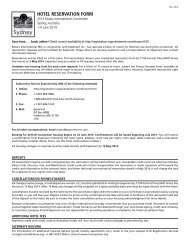Effective Public Relations: A Guide - Rotary International
Effective Public Relations: A Guide - Rotary International
Effective Public Relations: A Guide - Rotary International
You also want an ePaper? Increase the reach of your titles
YUMPU automatically turns print PDFs into web optimized ePapers that Google loves.
oped, created to reduce the proportion<br />
by half of the world’s population<br />
without access to safe water by 2015.<br />
The <strong>Rotary</strong> Safe Water Project, a<br />
two-year initiative in Kenya, started in<br />
April 2005. The <strong>Rotary</strong> Club of Atlanta,<br />
Georgia, USA, and <strong>Rotary</strong> clubs in Kenya<br />
partnered with Emory University’s<br />
Center for Global Safe Water (CGSW),<br />
and the U.S. Centers for Disease<br />
Control and Prevention (CDC) creating<br />
the Safe Water and AIDS Project<br />
in western Kenya’s Nyanza Province.<br />
This Kenyan-based nongovernmental<br />
organization mobilizes rural community-based<br />
HIV/AIDS groups to<br />
become vendors of the Safe Water<br />
System, enabling them to earn an<br />
income, provide access to safe water,<br />
and support AIDS orphans and widows.<br />
Additionally, the <strong>Rotary</strong> club project<br />
has drilled more than 100 boreholes<br />
in two dry districts of eastern Kenya<br />
and acts as the local agent in managing<br />
the implementation of the well-drilling<br />
operation. A CGSW staff member<br />
in Kenya oversees the project and<br />
submits reports on its progress. CDC<br />
provides logistical help for the project,<br />
and the Center for Global Safe<br />
Water and the CDC perform joint<br />
research on the project’s health impact.<br />
10<br />
Through this nonprofit project, the<br />
cooperating organizations have made<br />
household water treatment and<br />
storage units available via commercial<br />
distributors and local artisans. In<br />
addition, local HIV/AIDS help groups<br />
have educated community members<br />
about health and home-based approaches<br />
to making water safe.<br />
Beyond<br />
Traditional<br />
Media<br />
<strong>Rotary</strong> clubs can improve their public image<br />
in ways other than news coverage. <strong>Rotary</strong><br />
<strong>International</strong> provides pre-produced PSAs<br />
for billboard and Internet advertisements<br />
and encourages all clubs to localize these<br />
materials for use in their communities.<br />
Cable and <strong>Public</strong>-<br />
Access Television<br />
In many areas of the <strong>Rotary</strong> world, public<br />
access or cable television provides commu-<br />
nity-based programming. Consult a cable<br />
company in your area to learn how your<br />
club might broadcast its service activities or<br />
weekly meetings or highlight<br />
special events and speakers.<br />
Some <strong>Rotary</strong> clubs have even<br />
taken advantage of cable television<br />
by producing and airing<br />
entire programs devoted to<br />
<strong>Rotary</strong>.<br />
<strong>Public</strong> Service<br />
Announcements<br />
Television and radio stations<br />
sometimes broadcast short<br />
announcements and messages


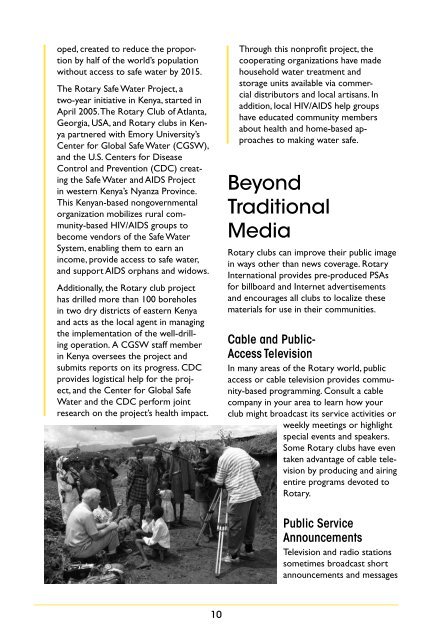
![La présidence du club [222-FR] - Rotary International](https://img.yumpu.com/25855726/1/190x245/la-presidence-du-club-222-fr-rotary-international.jpg?quality=85)

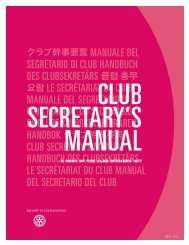

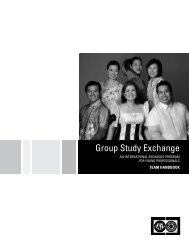
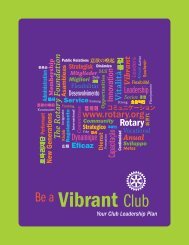
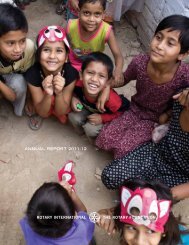
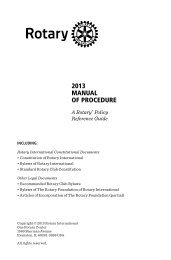


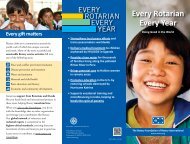
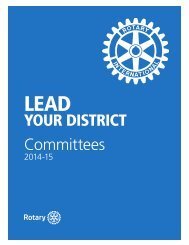
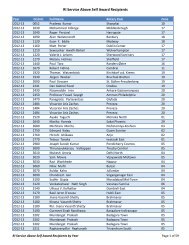
![La conférence de district [800-FR] - Rotary International](https://img.yumpu.com/25855636/1/190x245/la-conference-de-district-800-fr-rotary-international.jpg?quality=85)
